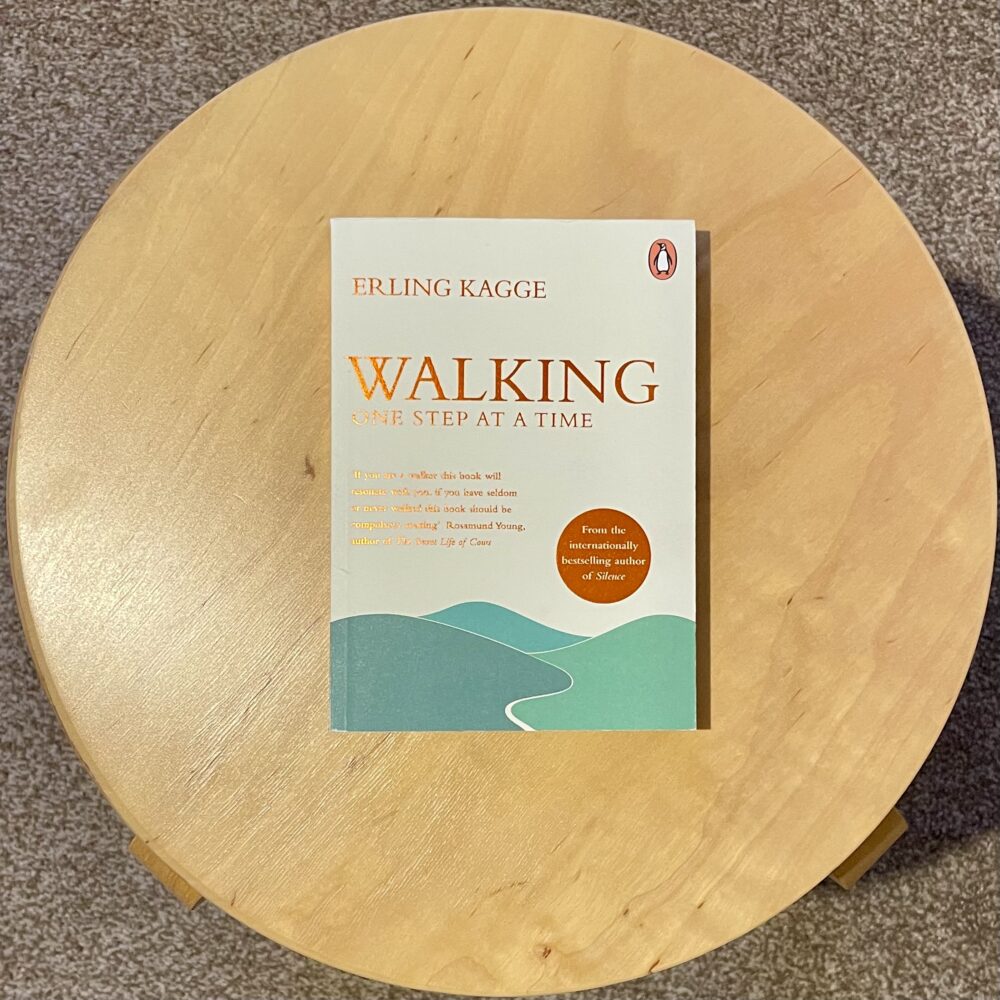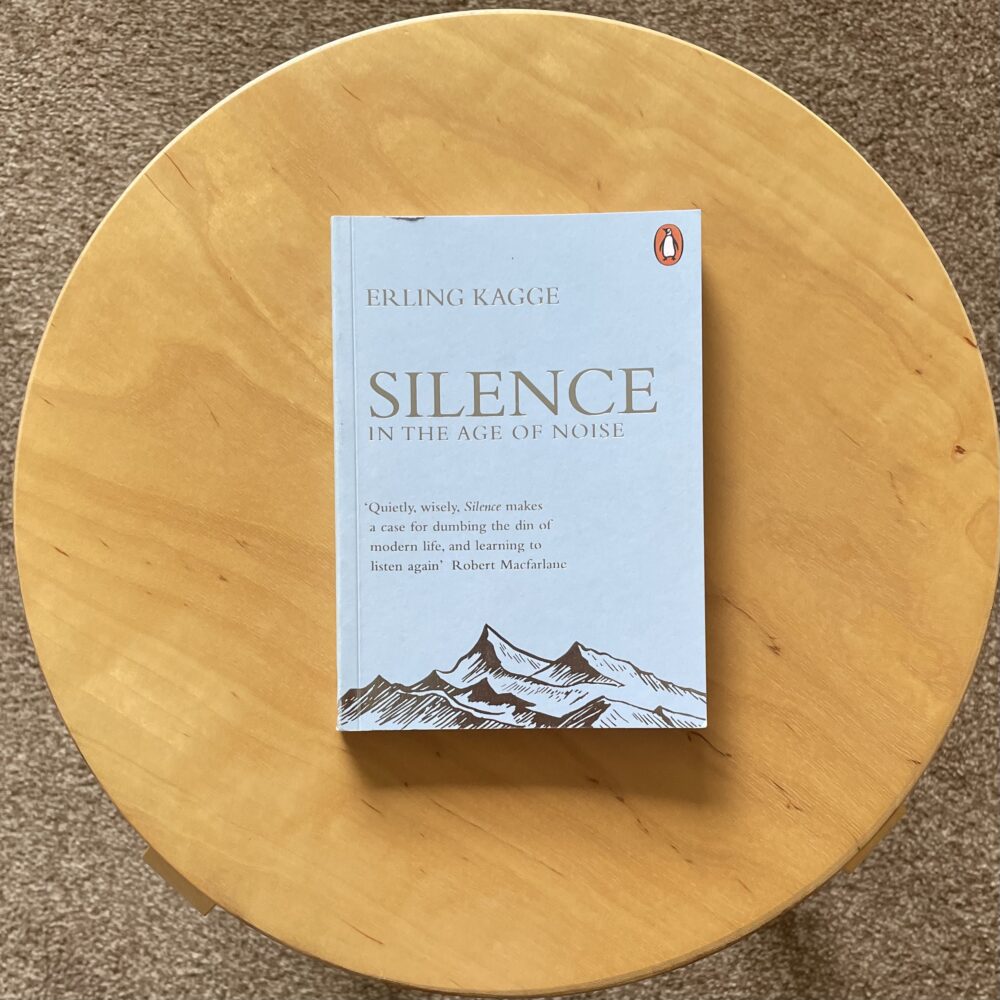‘Walking’ by Erling Kagge

Last month, I enjoyed a series of reflections on silence by the Norwegian explorer Erling Kagge. Walking is the follow-up, published in 2020, in which Kagge shares reflections and observations about putting one foot in front of the other. He draws on all kinds of sources, from ancient philosophy, to his father’s death, to cutting-edge cockroach research.
Kagge’s overall message is that walking makes us human: the more one walks, the more human one becomes, and the more knowledge one absorbs about oneself and the world. He argues convincingly that if people walked more, the world would be a better place. And he suggests that walking is the ‘best medicine’, in terms of both physical and mental health.
Kagge also quotes an astonishing statistic, which I’ve since found comes from a 2016 survey, which says that 75% of 5-12 year olds in the UK spend less time outside each day than the average UK prisoner (one hour). I’m amazed that I’ve never come across that statistic before in my public health work.
I’m predisposed to like this book because I agree with most of its arguments. I was particularly struck by a passage in which Kagge discusses how our perception of time changes according to the speed of travel:
When you move fast to save time, time moves fast, too. I’m always struck by how little time you actually save by driving. When you walk, time stretches.
This rings true. I’m lucky enough to be able to walk to work each day, but on the rare occasions when my 45-minute stroll is compressed into a shorter bus or car journey, I feel like I have lost rather than gained time. The walk really does seem to stretch my experience of time. I think this applies beyond walking: Wendy and I recently reflected that a recent holiday was hampered by arriving too fast on a direct flight, rather than us having the luxury of slower travel.
I thoroughly enjoyed this short set of reflections, and I will recommend it to others.
This post was filed under: What I've Been Reading, Erling Kagge.
